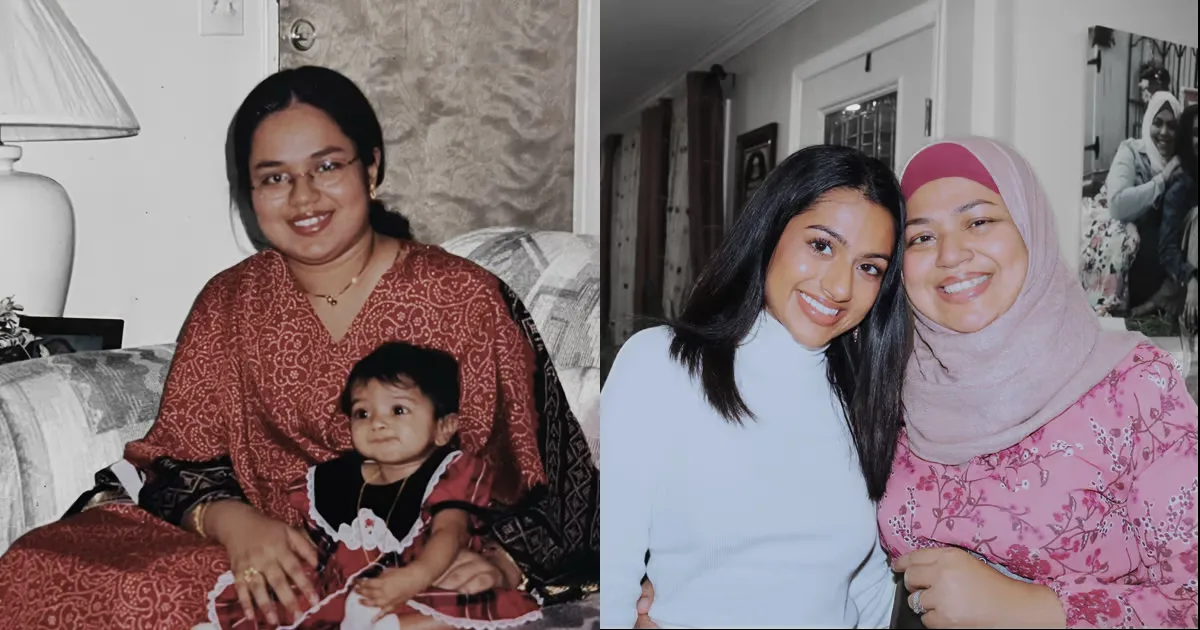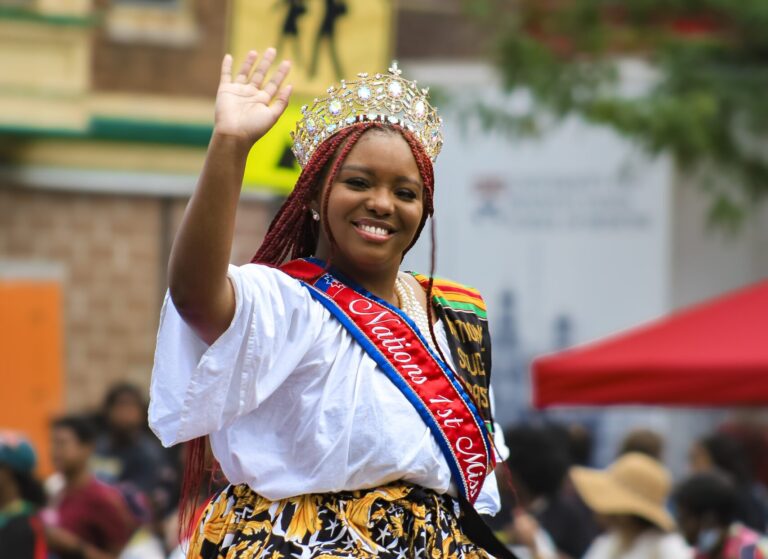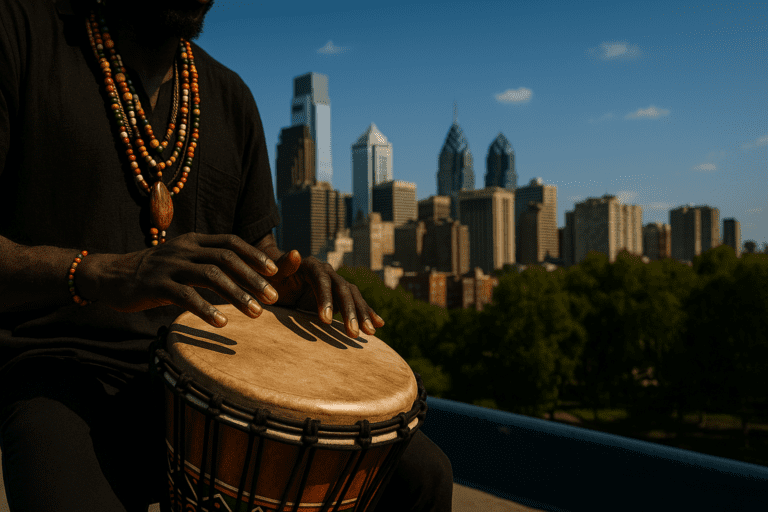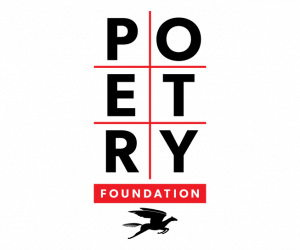By Mariyum Raina Rizwan
On my 22nd birthday, I woke up in the comfort of my own apartment eager to celebrate with my friends.
For my mama’s 22nd birthday, she sat patiently on a silk throne encrusted in pearls dressed head to toe in white. In a matter of minutes, Iynul Thahir became Iynul Rizwan. She was no longer just a 22-year-old-girl, but a wife. She had a cultural obligation to follow her husband and help him pursue his career in America, all while creating a family and making a home.
My mom moved 8,760 miles away from the only life that she knew in Sri Lanka to a small town in northern New Jersey where she dreamed of pursuing her college education. In the land of opportunity, anything was possible – or so she thought.
Fourteen days after her 23rd birthday, my mom gave birth to me. For the time being, that dream remained just that – a dream.
“I was a baby trying to raise a baby,” she told me recently. “It was really hard. I had no friends. I had no job. WhatsApp didn’t exist, so I couldn’t even call my mom. I was so scared that if something ever happened to me my mom would never know.”
In some ways, my mom and I grew up together and, over the last two decades, we have watered each other and helped the other blossom. After turning 22 this past year, I have reflected on how different my life is because of the sacrifices my mom made.
I am graduating from college soon, living on my own and working for one of the largest media companies in the country: I am my mother’s wildest dreams.
Stories like my mother’s are not uncommon among South Asian American women of her generation. Many of them immigrated to the United States after an arranged marriage, often at a young age.
The collectivist nature of the South Asian community looks at marriage as a union of two families, not just two people. More than 90% of Indians have had an arranged marriage. Despite Western perception, arranged marriages work for many couples.
It worked for my mom, too. Marrying young didn’t prevent her from raising her four children, earning a degree, having a fulfilling teaching career or starting her own business. If anything, she is a reminder to me that anything is possible.
“Although my early twenties were hard, you’re facing a different set of problems,” she said to me. “It’s hard being an immigrant’s kid. It’s also hard being my kid. I have certain expectations for you as the eldest daughter, and I think it’s also hard having a young mom. You were my test subject.”
The summer before I moved to Philly, arguments between me and my mother were as regular as the nightly news. I wanted to study journalism at Temple University in Philadelphia, but my mom thought I was too young to move out on my own. I recall fighting with her and telling her, “Just because your mom didn’t let you, doesn’t mean you have to do the same to me.”
I was eager to prove myself to her. I wanted to show my mom that I would be able to move away from home and still stay true to myself and the values she had instilled in me.
At first it was difficult. I didn’t want to admit that, not only did I miss my mom, but she was right. Suddenly, I’m living alone in the apartment I fought to move into and all I wanted was her. How much cumin do I add when sauteing onions and garlic? How do I even wash meat? It took some time, but I realized that while she may not live with me, she was only a call away. My thirty-second questions turned into hour-long phone conversations.
“I’m glad you stood up to me,” she says now. “I am so proud of everything you have accomplished. Although I know I was hard on you, I think this made you a better person and made me a better mom.”
My mom is my biggest inspiration. Despite our many ups and downs during my teenage years, she has shown me that you can be your father’s daughter, your husband’s wife and your children’s mother and still be just you. While I pursued my undergraduate degree at Temple, my mom earned hers at Columbia University, graduating magna cum laude in sustainable development.
“I did it for you,” she said. “I was scared you wouldn’t be ambitious and that you would look back and think your mom just gave up on life. I didn’t want you to think I wasn’t driven. I wanted you to know that I did what I had to do, but that age is just a number. That shouldn’t stop you.”
In every way my mom felt limited, she ensured that I had a future with unlimited opportunity. Although she has grown so much from the young girl who got married all those years ago, there’s still a part of me that wants to make my mom’s inner child proud.
I want to pave my own path while still honoring every value she has instilled in me.
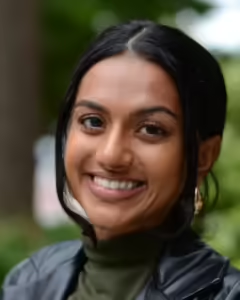
Maryam Raina Rizwan
Mariyum Raina Rizwan is a reporting fellow for Central Desi.

